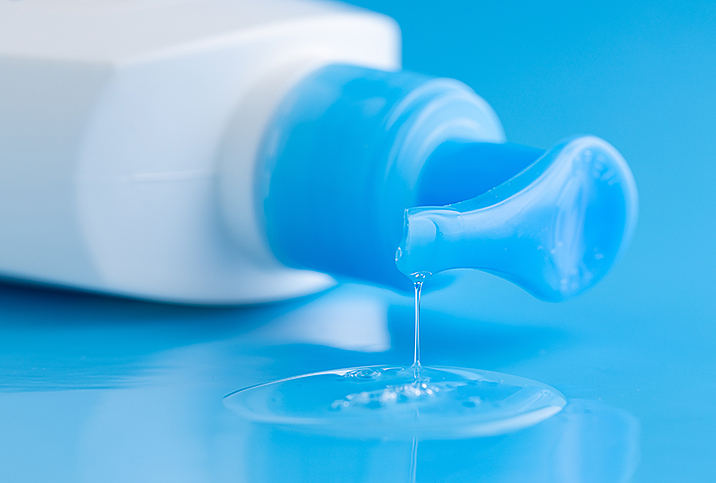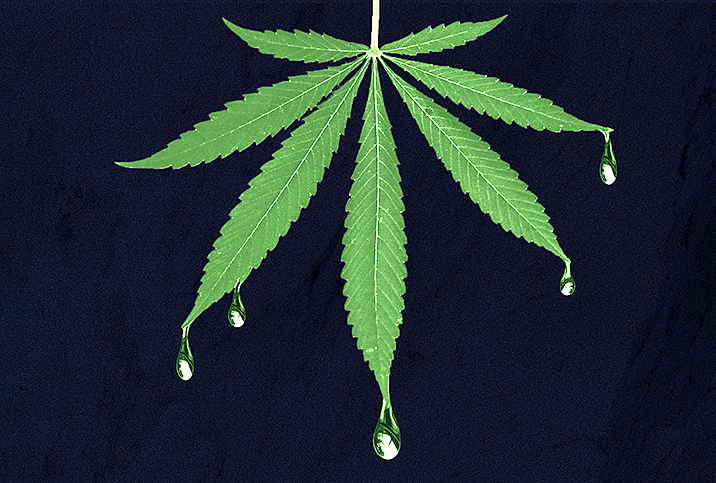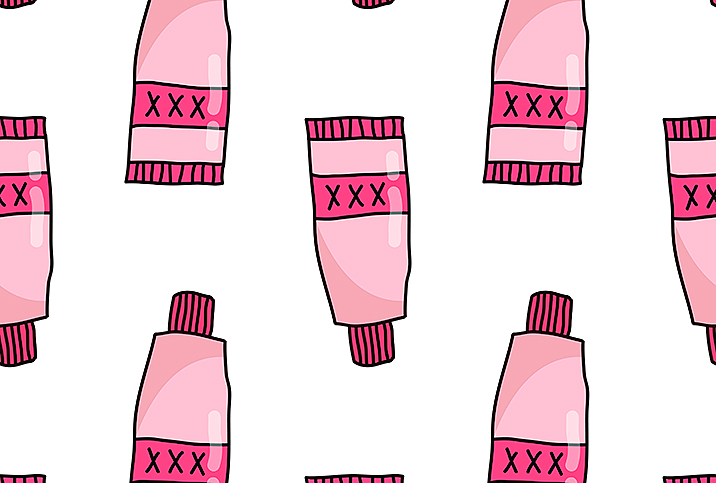What's Lurking in Your Lube? And Is It Safe?

I have a bottle of Durex Play Pleasure Gel on my nightstand that I never thought to inspect before, but a quick investigation of the label shows the ingredients include aqua (water), propylene glycol, glycerin, carbomer, xanthan gum, sodium hydroxide, benzoic acid and citric acid.
My eyes might have glazed over all those complicated words in the past, but now I want to know: Are these ingredients harmful?
Contrary to popular opinion, lube is not just for people with vaginal dryness, and using it doesn't mean your partner doesn't turn you on enough. Lubricants make sex feel better more than 70 percent of the time, according to a 2009 Indiana University study of 2,453 women ages 18 to 68. In other words, lube is for everyone, and you should know what's inside it.
Intimate products, including lubricants, come into contact with the most delicate parts of our bodies. Since the vagina and vulva are super-absorbent, we should care deeply about the ingredients we are putting on and inside ourselves.
Common ingredients in lubricants
Propylene glycol
One common ingredient found in commercial lubricants is propylene glycol, which helps lube stay moist longer, explained Kelly Johnson-Arbor, M.D., a medical toxicologist and co-medical director at the National Capital Poison Center in Washington, D.C.
When the eyes or skin are exposed to propylene glycol, it may cause irritation, redness or pain. It is worth noting that the dose makes the poison, meaning levels of propylene glycol found in lubricants are likely not enough to cause irritation for the average person.
Parabens and phthalates
Parabens and phthalates are used as preservatives in feminine hygiene products, condoms, food and lube.
"Phthalates are used not just in lubricants but also in cosmetics and many other products because they can bind ingredients to help them last longer," said Karyn Eilber, M.D., a board-certified urologist and the CEO and co-founder of Glissant, a natural lubricant brand based in Santa Monica, California.
The main concern with phthalates is they've been linked to infertility in animal studies because they can disrupt the endocrine system. However, very few studies have been done on the reproductive health effects of phthalates in humans, and the Food and Drug Administration (FDA) states that the reproductive risks from exposure to phthalates are minimal to negligible in most cases, based on information from the National Institute of Environmental Health Sciences (NIEHS) and the Centers for Disease Control and Prevention (CDC).
"Parabens are a preservative that has also been linked to fertility problems and may act like estrogen, so it should be avoided if there is a history of breast cancer," Eilber warned. "Even without breast cancer, parabens contain substances that can promote breast tissue growth, which could aggravate conditions like cystic breast disease or other benign conditions."
The amount of parabens and phthalates used in products such as condoms, lube and cosmetics is low, and both parabens and phthalates are metabolized quickly by the body. Due to this rapid metabolization, parabens do not accumulate in the skin or other body organs, according to the CDC.
Benzoic acid
Benzoic acid is another common preservative found in lube.
"Benzoic acid is considered 'generally recognized as safe' by the U.S. FDA. While small amounts of benzoic acid are not likely to result in toxic effects, it can cause skin rashes or irritation in people with sensitive skin," Johnson-Arbor said.
If you notice your skin is getting irritated by your lubricant, it's worthwhile to turn the bottle over and check the label. It could be one of the preservatives that are causing you grief.
Oils, fragrances and animal byproducts
Other common lube ingredients that can cause potential issues are mineral oil, fragrances and animal byproducts.
- Oils. Eilber explained that oil can break down condoms, so if you're using lubricant for penetrative sex with condoms, it's best to avoid lube that contains oil and instead opt for water-based or silicone-based lubes, both of which are safe for condoms
- Fragrances and flavorings. Finding an unscented, taste-free product can be a safer choice for people with sensitive skin. Sometimes fragrances are made with chemicals that could cause an allergic reaction. In general, it's best to steer clear of putting flavored and scented products in your vagina as they can disrupt your vaginal microbiome.
- Animal byproducts. If you're vegetarian or vegan, looking for lubricants with no animal byproducts is essential.
How to find body-safe lube
You know your body best, and some of these ingredients may cause no issues for you and your vagina, but if they do, then it's time to investigate.
Read the label. Investigate the ingredients list. At the very least, try to avoid the ingredients that may exacerbate conditions you already face, such as sensitive skin, yeast infections or risk of breast cancer.
You can also buy lubricants exclusively from clean or vegan companies. Eilber suggested looking for plant-based lubes using words such as "clean" and "natural." While this is a great place to start, it is important to note that terms such as clean and natural are not regulated, unlike "organic," so your best bet is to focus on the ingredient list rather than terminology.
Final advice
In a nutshell, some chemicals in common lubricants can cause irritation and allergic reactions. If you've been struggling with irritation on your vulva or in your vagina, it's worth taking a look at the intimate products you're using. It might be time to switch to high-quality lube that's free of potentially problematic ingredients.


















